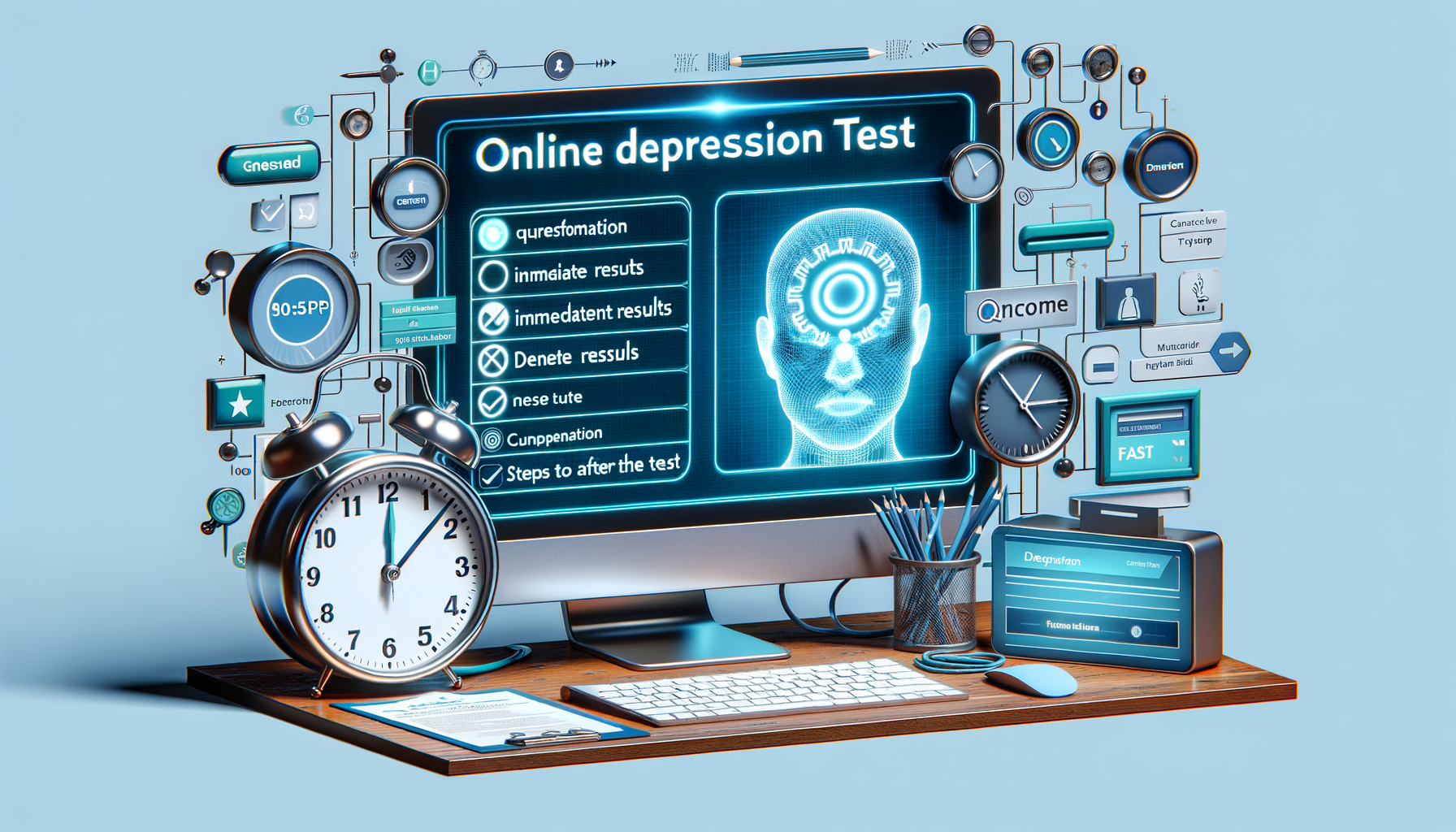Introduction to Online Depression Tests
In the digital age, the convenience of online tools has extended into the realm of mental health, offering individuals the ability to take depression tests from the comfort of their homes. These tests are designed to provide a preliminary assessment of one’s mental state, potentially indicating symptoms of depression. However, their accuracy and reliability often come into question. Understanding the purpose and limitations of these online assessments is crucial before relying on their results.
Online depression tests typically consist of a series of questions that gauge mood, behavior, and thought patterns. They are based on standard diagnostic criteria, such as those found in the DSM-5, but vary widely in terms of depth and scientific backing. While they can be a useful first step in identifying potential mental health issues, they should not replace professional evaluation. In this article, we will explore the accuracy of these tests, the immediacy of results, and the steps to take after completing one.
Evaluating the Accuracy of Online Depression Tests
When considering the accuracy of online depression tests, it’s essential to recognize the variability in their design and implementation. Many tests are created by reputable organizations and are based on well-established psychological principles. However, the lack of regulation in the online space means that not all tests are created equal. Factors such as the source of the test, the methodology used, and the quality of questions can significantly impact the accuracy of the results.
One of the key challenges with online tests is their inability to account for the nuances of individual circumstances. Unlike a face-to-face evaluation with a mental health professional, online tests cannot consider external factors such as life events or medical history that might influence one’s mental health. Furthermore, the absence of a controlled environment means that users may not always interpret questions consistently, leading to potential inaccuracies in the results.
Despite these limitations, online depression tests can still serve as a valuable tool for raising awareness and prompting individuals to seek further help. They can offer a preliminary indication of whether someone might benefit from professional evaluation, thereby acting as a catalyst for further action.
The Appeal of Free Online Depression Tests with Immediate Results
The allure of free online depression tests lies in their accessibility and the promise of immediate feedback. For many, the ability to quickly assess their mental health without financial cost or the need for scheduling an appointment is highly appealing. These tests often provide instant results, which can be both a comfort and a concern.
Immediate results can offer a sense of clarity for those experiencing distressing symptoms, allowing them to better understand their feelings and consider seeking professional help. However, the immediacy of these results can also lead to misinterpretation. Without the guidance of a mental health professional, individuals may misjudge the severity of their symptoms or overlook the need for further evaluation.
It’s important for users to approach these tests with a critical eye, understanding that while they can provide insights, they are not definitive diagnoses. The results should be seen as a starting point for further exploration rather than a conclusive statement on one’s mental health.
Steps to Take After Completing an Online Depression Test
After taking an online depression test, it’s crucial to approach the results thoughtfully and consider the next steps. Here are some recommended actions to consider:
- Reflect on the Results: Take time to consider how the results align with your current feelings and experiences. Are there specific areas where you feel the test accurately reflects your state of mind?
- Seek Professional Evaluation: If the test indicates potential symptoms of depression, consider reaching out to a mental health professional for a comprehensive evaluation. A professional can provide a more nuanced understanding and offer tailored advice.
- Engage in Self-Care: Regardless of the results, prioritize self-care activities that promote mental well-being. This might include exercise, mindfulness practices, or connecting with supportive friends and family.
- Educate Yourself: Learn more about depression and mental health to better understand your experiences. Knowledge can empower you to make informed decisions about your mental health journey.
Remember, online depression tests are a tool, not a substitute for professional care. Use them as a guide to better understand your mental health and to take proactive steps towards well-being.
Conclusion: Navigating the Path to Mental Wellness
Online depression tests can be a helpful resource in the journey towards mental wellness, offering a convenient way to assess one’s mental state. However, their accuracy and interpretation require careful consideration. By understanding the limitations and potential of these tools, individuals can better navigate their mental health journey.
Ultimately, the key is to use online tests as a stepping stone towards seeking professional help and engaging in self-care practices. Mental health is a complex and multifaceted aspect of our lives, and while online tools can provide insights, they are most effective when complemented by professional guidance and personal reflection.
As you continue on your path to mental wellness, remember that seeking help is a sign of strength, and taking proactive steps towards understanding your mental health is an empowering choice.

Leave a Reply